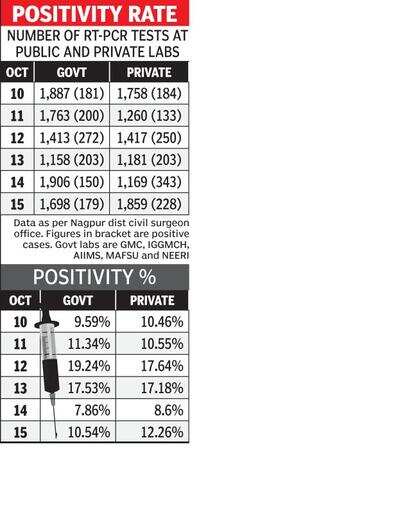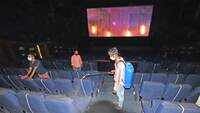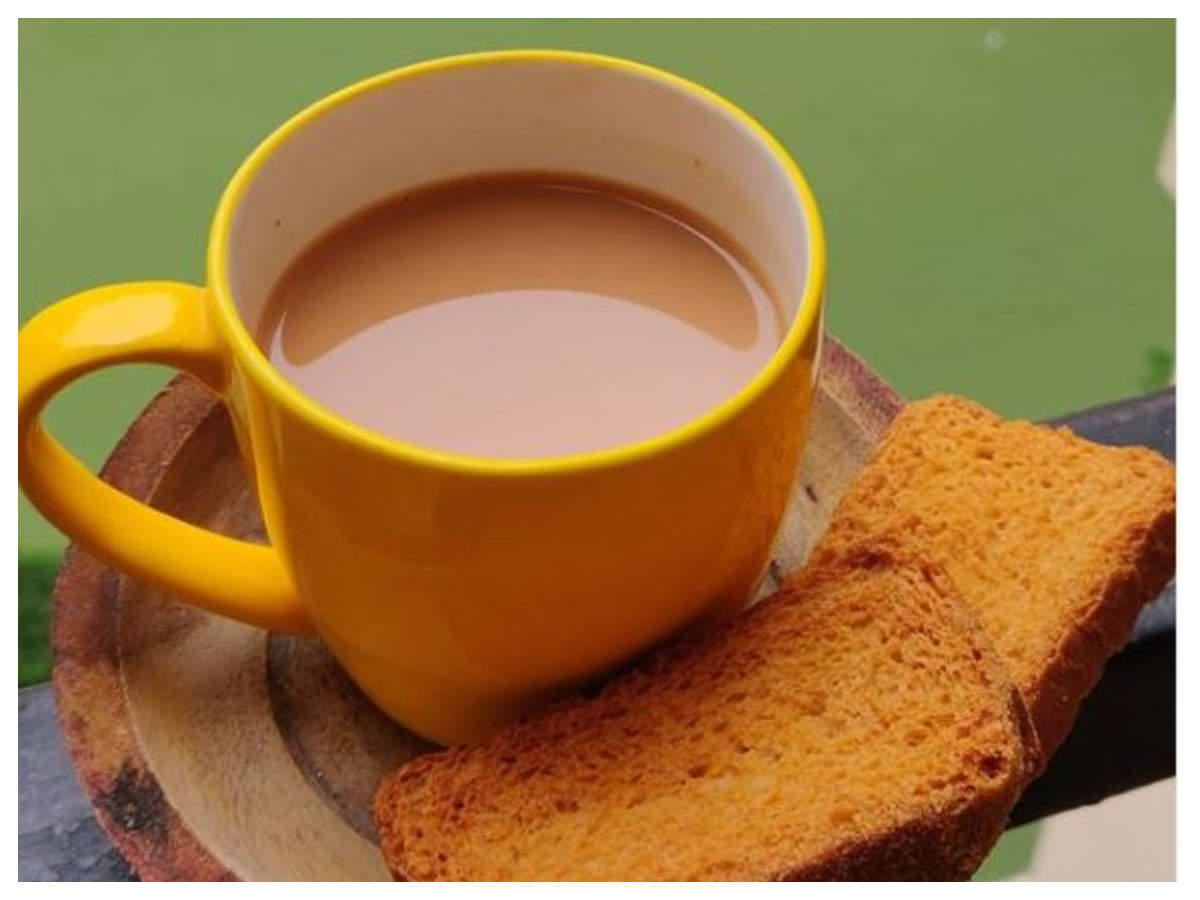
NAGPUR: Following the recent controversy regarding RT-PCR kits procured from GCC Biotech giving false negative results, medical officials and private labs have revealed that several such cases have occurred in the city too. Authorities have maintained that faulty kits were not used in any public lab in the city, yet the analysis raises a concern.
Private labs told TOI many patients had got negative result through RT-PCR tests at public lab but were found positive in their lab soon after. A private lab director said the positivity rate was less in public labs for RT-PCR testing which indicate faulty kits may have been used.A random analysis of RT-PCR data since October 10 found the positivity rate of private lab was higher than government labs in the city. As per civil surgeon data, 9,825 RT-PCR tests were performed at government labs. Of these, 1,185 were found positive which is 12.06% of the total. Against this, private labs have 15.51% rate. Of the 8,644 samples, 1,341 were found positive here in the same duration.
Clinicare Specialty Labs director Dr Rajkumar Rathi said several doctors had referred patients to his facility for an immediate retest after they got an RT-PCR negative elsewhere. “We don’t’ ask where they got the first test done but yes their doctors would advise them a repeat test at our lab soon after they tested negative using RT-PCR. We have a closed system where entire components of testing kits come from a single company. We have Trunat machine capable of giving results in two hours,” he said.
GMCH medical superintendent Dr Avinash Gawande said the sensitivity of RT-PCR was only 60 to 70% reliable. “Machine error, maintenance of temperature for collected sample and viral-load are all responsible for a false negative in RT-PCR testing,” he said.
A top official from divisional commissioner office too said it is a well-known that 30% test results from RT-PCR are likely to be false. Dr Gawande said the same method was used to repeat the testing which gave a positive test later.
IGGMCH associate professor of microbiology Dr Ravindra Khadse said the virus gets degraded if not handled properly. “This is a big factor. Secondly, virus shedding always keeps varying. Same patient’s swabs taken three different times in a day may give different results,” he said.
Dr Sandhya Saoji, director of Su-Vishwas Diagnostics lab, said “There is no 100% guarantee that a particular result is true or false. It is multi-factorial and depends on stage of infection as well.” Sources said only those labs that used DMER kits without validation may have got improper results.
One public lab incharge said, “We didn’t use DMER kits right away on patients. Many times good kits too are found faulty so we return them.”
Dr Krishna Khairnar, scientist and head of environmental virology cell, Covid-19 molecular diagnostics centre, NEERI, suggested that internal validation with a few known samples is a must. “This is what NEERI lab does as a best practice. There is no surety if any new kit will work well,” he said.
Private labs told TOI many patients had got negative result through RT-PCR tests at public lab but were found positive in their lab soon after. A private lab director said the positivity rate was less in public labs for RT-PCR testing which indicate faulty kits may have been used.A random analysis of RT-PCR data since October 10 found the positivity rate of private lab was higher than government labs in the city. As per civil surgeon data, 9,825 RT-PCR tests were performed at government labs. Of these, 1,185 were found positive which is 12.06% of the total. Against this, private labs have 15.51% rate. Of the 8,644 samples, 1,341 were found positive here in the same duration.
Clinicare Specialty Labs director Dr Rajkumar Rathi said several doctors had referred patients to his facility for an immediate retest after they got an RT-PCR negative elsewhere. “We don’t’ ask where they got the first test done but yes their doctors would advise them a repeat test at our lab soon after they tested negative using RT-PCR. We have a closed system where entire components of testing kits come from a single company. We have Trunat machine capable of giving results in two hours,” he said.
GMCH medical superintendent Dr Avinash Gawande said the sensitivity of RT-PCR was only 60 to 70% reliable. “Machine error, maintenance of temperature for collected sample and viral-load are all responsible for a false negative in RT-PCR testing,” he said.
A top official from divisional commissioner office too said it is a well-known that 30% test results from RT-PCR are likely to be false. Dr Gawande said the same method was used to repeat the testing which gave a positive test later.
IGGMCH associate professor of microbiology Dr Ravindra Khadse said the virus gets degraded if not handled properly. “This is a big factor. Secondly, virus shedding always keeps varying. Same patient’s swabs taken three different times in a day may give different results,” he said.
Dr Sandhya Saoji, director of Su-Vishwas Diagnostics lab, said “There is no 100% guarantee that a particular result is true or false. It is multi-factorial and depends on stage of infection as well.” Sources said only those labs that used DMER kits without validation may have got improper results.
One public lab incharge said, “We didn’t use DMER kits right away on patients. Many times good kits too are found faulty so we return them.”
Dr Krishna Khairnar, scientist and head of environmental virology cell, Covid-19 molecular diagnostics centre, NEERI, suggested that internal validation with a few known samples is a must. “This is what NEERI lab does as a best practice. There is no surety if any new kit will work well,” he said.

Coronavirus outbreak
Trending Topics
LATEST VIDEOS
City
 On cam: Fort wall collapses after heavy rains in Telangana
On cam: Fort wall collapses after heavy rains in Telangana  Kerala gold smuggling case: Accused have links with Dawood Ibrahim, says NIA
Kerala gold smuggling case: Accused have links with Dawood Ibrahim, says NIA  'Red light on, gaadi off': Delhi CM Arvind Kejriwal urges people to take pledge to reduce air pollution
'Red light on, gaadi off': Delhi CM Arvind Kejriwal urges people to take pledge to reduce air pollution  Delhi Unlock 5: Movie theatres reopen with limited seating capacity
Delhi Unlock 5: Movie theatres reopen with limited seating capacity
More from TOI
Navbharat Times
Featured Today in Travel
Quick Links
Get the app



